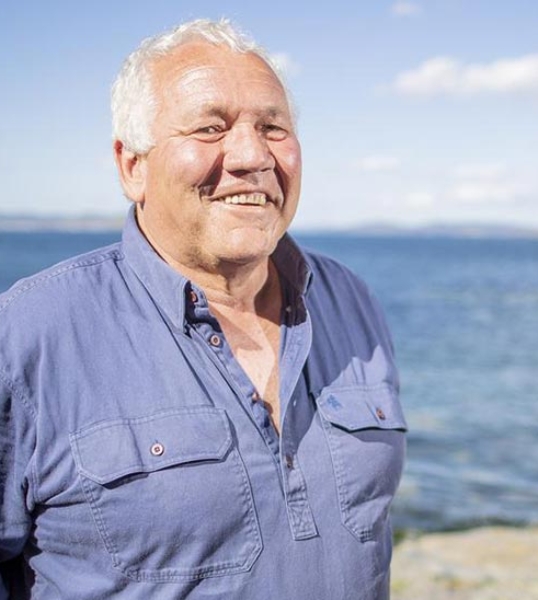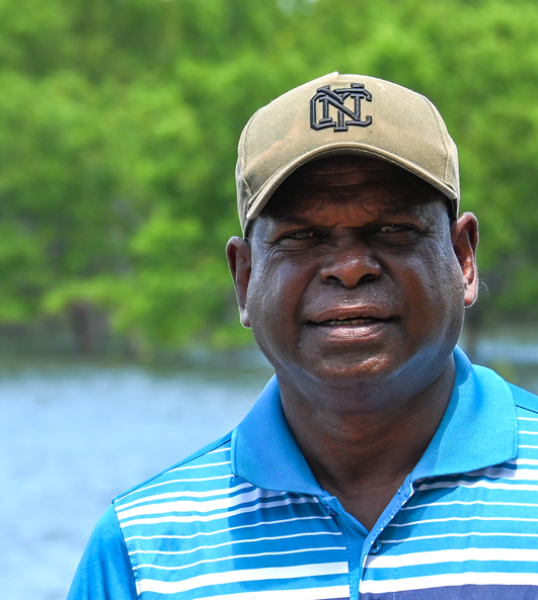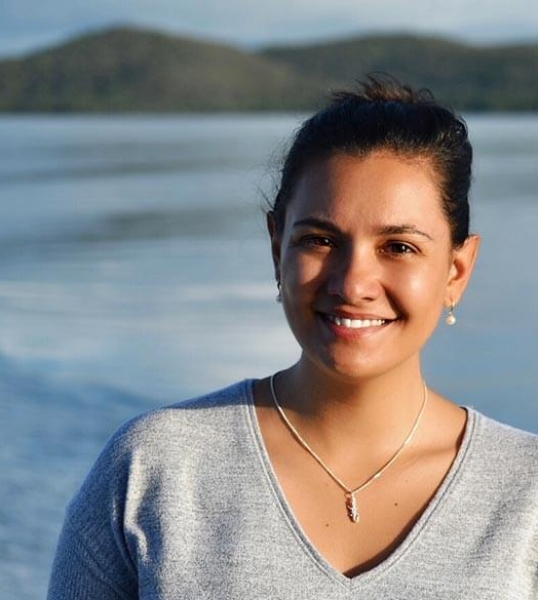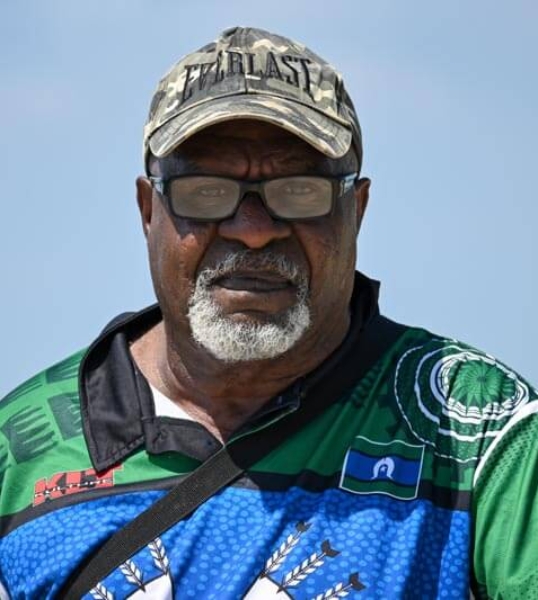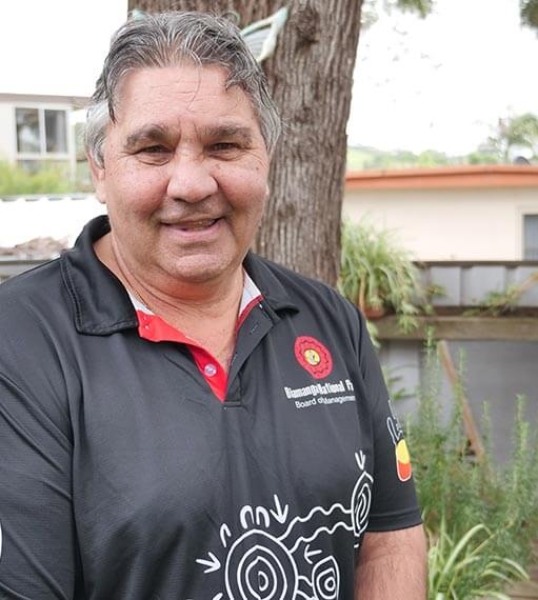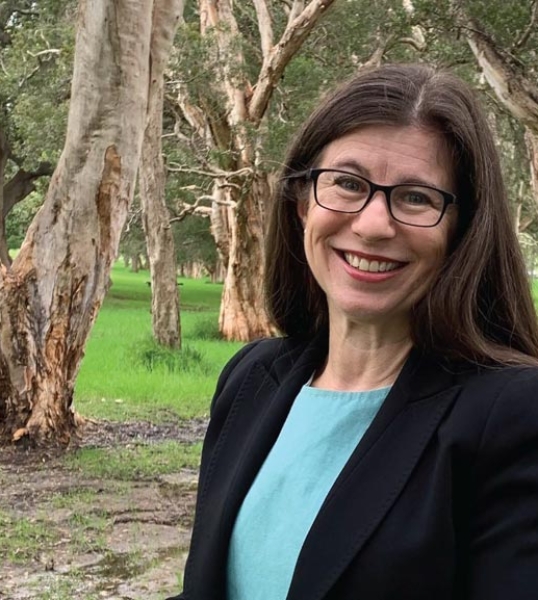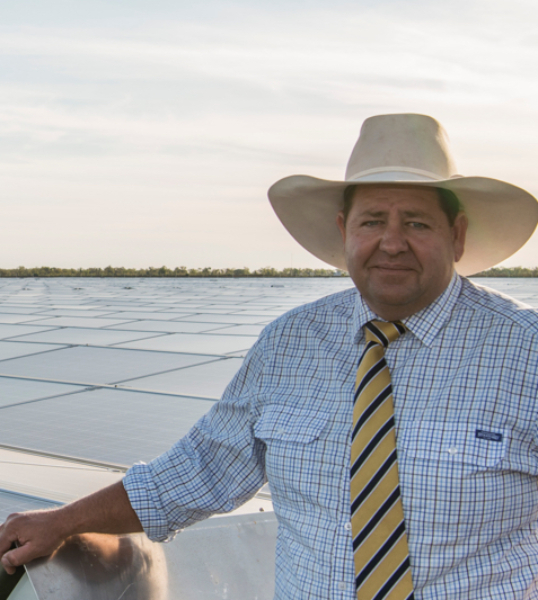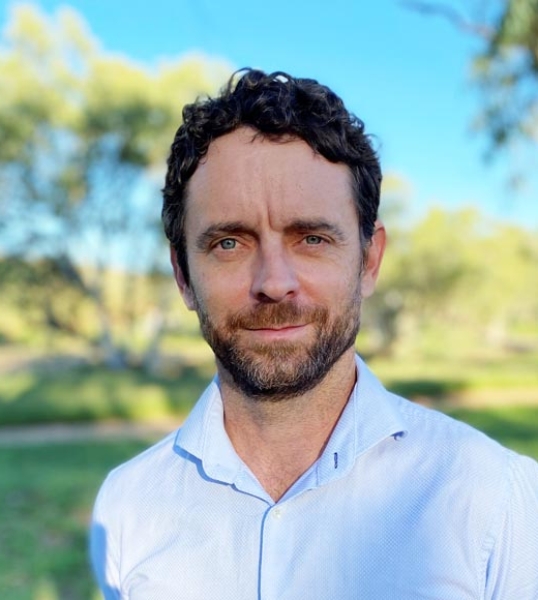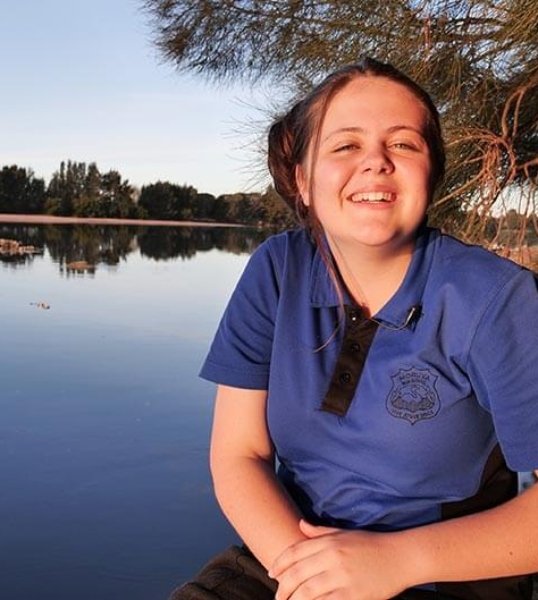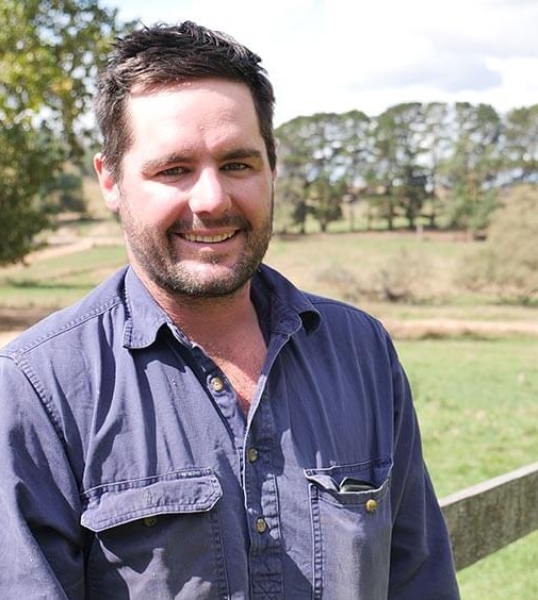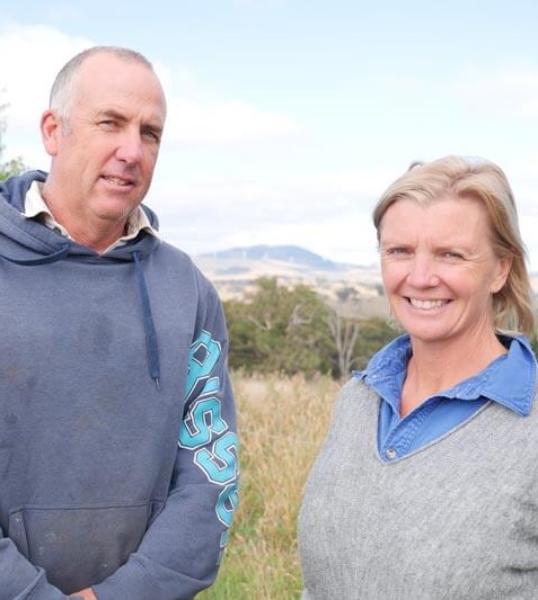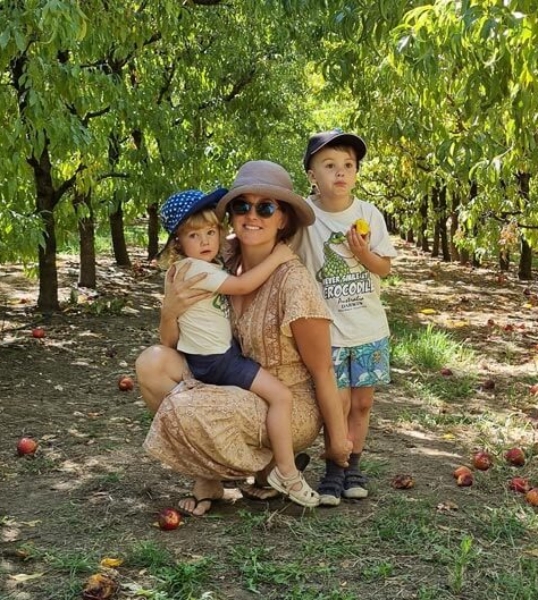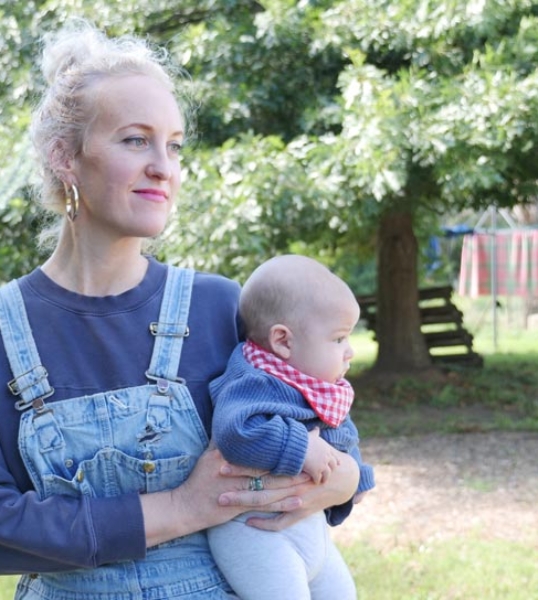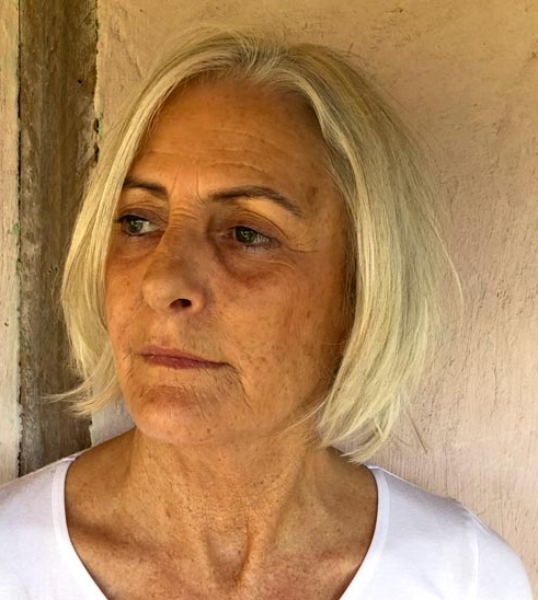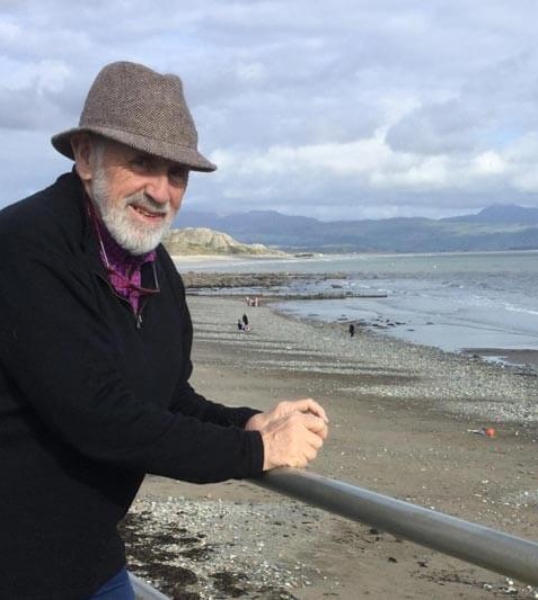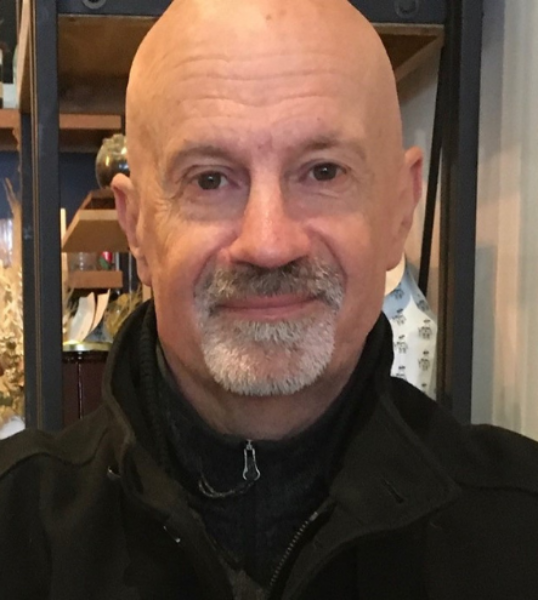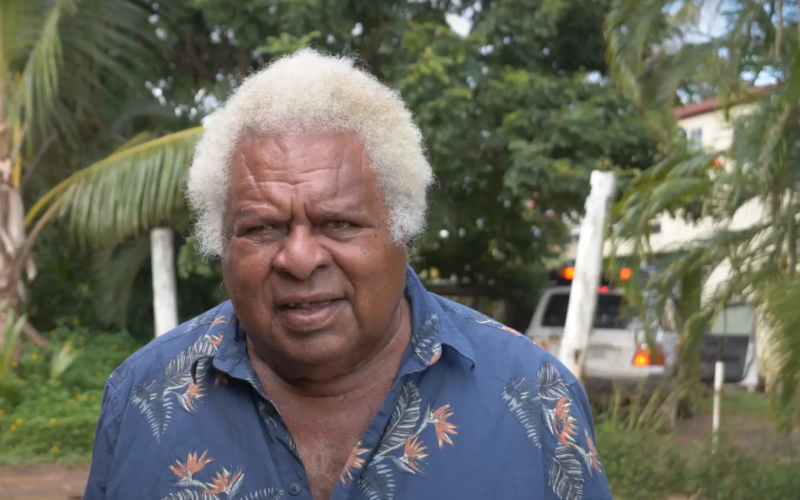
Watching the sea level rise over the years has been terrifying. Our culture, our roots, and our loved ones - ancestors - are buried here. I know it’s legal to exhume loved ones and relocate. However, in our culture, our loved ones should not be distant from where they lived. Saibai must be their final resting place. And for most of us, we don’t want to leave. We will stay for as long as we can.
Saibai Island, QLD
My name is Keri Akiba, and I am from Saibai Island.
In the late 60s and 70s, during the wet season, we would get monsoons and water spouts. We don’t get them anymore. This has really impacted our seasonal calendar. The wet season would normally be from late December to early March before changing over to a prevailing South Easterly wind, which would practically blow all year round. During the Easter weekend which just passed, a Westerly wind was blowing. This is just one example of how climate change has impacted upon our seasonal calendar.
These things are unpredictable now. It wasn’t always like that. In the past, families would have sacred knowledge of when to plant what types of crops in their traditional gardens, but that doesn’t apply anymore. We don’t really do traditional gardening anymore. Because of the king tides, all of our gardens are now underwater during high tides. We don’t get vegetables from our gardens – now we have to depend on the shops.
This is likely because of the salt in the soil now, as well as the fact that gardens are submerged at times. The swamp used to be full of rainwater with water lilies, ducks, and geese in abundance. We could once bathe there too. But not anymore. Now, it’s full of salt and mud. In fact, entire sections of our island are underwater, and this has obviously affected our wildlife. We lost all three varieties of ducks which used to be abundant on Saibai.
We used to grow bananas, taro, yam, casaba, sweet potatoes, and vegetables. In the past, we used to get fruits such as watermelons from across the border when PNG was still part of Australia. When it became an independent nation and the treaty came into force claiming this part of the Torres Strait as a Protected Zone, they stopped us from accessing fruit and vegetables from across the border.
Watching the sea level rise over the years has been terrifying. Our culture, our roots, and our loved ones – ancestors – are buried here. I know it’s legal to exhume loved ones and relocate. However, in our culture, our loved ones should not be distant from where they lived. Saibai must be their final resting place. And for most of us, we don’t want to leave. We will stay for as long as we can.
The government does have a duty of care to protect us, as we are part of Australia. They must do more for us to continue to live here. We must come up with solutions so that we can live on our island home for as long as we like. This is, after all, the only place where our roots are.
If we have to leave, the old days will be repeating themselves – a culture of segregation. On top of that, once we move down south somewhere, we will lose our traditions. We might not even move as a group and have to be separated. We will be strangers to the world.
I am very grateful to Uncle Paul and Uncle Pabai for their enthusiasm to be our plaintiffs to push this class action through the courts. I would certainly encourage the rest of Australia, and the Torres Strait and the Pacific Islands that are experiencing similar issues with climate change (such as Tuvalu and Kiribati) to get behind this movement.
My name is Keri Akiba, and I’ve witnessed climate change.
Hundreds of people from across the country are sharing their stories to send a clear message to the Australian government - it's time for real action on climate change.
Every story appears as a point on this map. Click around to read how climate change is affecting our communities, and add your own story to the map.
People all across Australia are being harmed by climate change. These are some of their stories.
